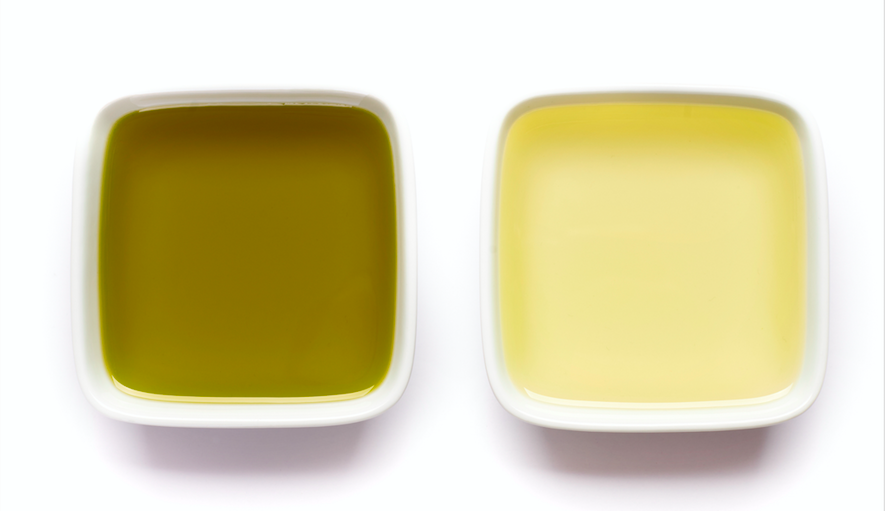
27 Jul Extra Virgin vs Virgin Olive Oil
Whether you are looking to impress dinner guests, or you simply want to understand the difference, learning to distinguish regular virgin olive oil from extra virgin olive oil (EVOO) is important. Acidity level is one of the main distinguishing factors between regular and extra virgin olive oil, but other elements will help you understand the difference between extra virgin vs virgin olive oil, too.
Acidity
Acidity levels are one of the most important factors in determining whether a Greek olive oil is a virgin or an extra virgin oil. Much of the difference comes down to acidity. By industry standards, olive oils must have an acidity content of 0.8% or lower to be considered “extra virgin.” Theros oils have an even lower acidity to produce a pure, unadulterated, and silky smooth end product. Our EVOO oils have just 0.4% acidity levels on average. Depending on the year and harvest, our EVOOs might have an acidity level that’s just 0.3%. Be aware that some oils don’t even have a label telling you the acidity level. Therefore, if you’re looking to get an EVOO specifically, be sure to only get a labeled product. Keep in mind that the industry standards used to distinguish the two types of olive oils are only found in Europe, not the United States.
Processing
Processing is another determining factor when classifying an oil. EVOO is produced exclusively using cold-pressed olives. Regular virgin oil, on the other hand, is produced with a combination of cold-pressed oils and blends. This often translates to a watered-down and nondescript taste with no guarantee of quality. EVOO is made by using a simple, age-old tradition of pressing the olives to grind them into a paste. The olives are then pressed to extract the oil. There is no heat involved, which preserves the flavor and helps give the EVOO a dark green color with a fruity aroma and peppery flavor. This process takes time, which also means it’s more difficult to certify an olive oil as EVOO.
Refining
Sometimes, a virgin oil does not meet the standards for an EVOO after it has been processed using mechanical means. When this happens, the oil goes through a further process of refining to remove impurities along with less palatable flavors and odors. Sometimes, the oil is created using a blend of other oils, which creates a bland end product with little color or flavor. The oil may be combined with trivial amounts of extra virgin olive oil to produce some taste, color, and flavor, but the end result is still an overly processed olive oil that isn’t meticulously produced in the same way and therefore lacks the quality level of
an EVOO. Virgin olive oils may be processed into two categories, which are called “pure” and “extra-light.” Pure oils have little flavor on their own. They have a blend of oils and usually less than 10% EVOO. Extra-light oils have a very light color and only minimal amounts of actual olive flavor.
Health Benefits
Sometimes, people believe that a “light” olive oil has less fat or calories. However, that’s not true – they only have less flavor! Light olive oils are among the most refined in the industry, which means they actually don’t produce any more health benefits than an EVOO. Therefore, with its minimal production process and alteration, EVOO quite often ends up being the healthier option of the two kinds of olive oil in the end.
If you’re looking for a high-quality oil, it helps to know the contributing factors for flavor, taste, and quality. We encourage you to try Theros Greek olive oils today to get a taste of what truly high-quality oil tastes like.


Sorry, the comment form is closed at this time.